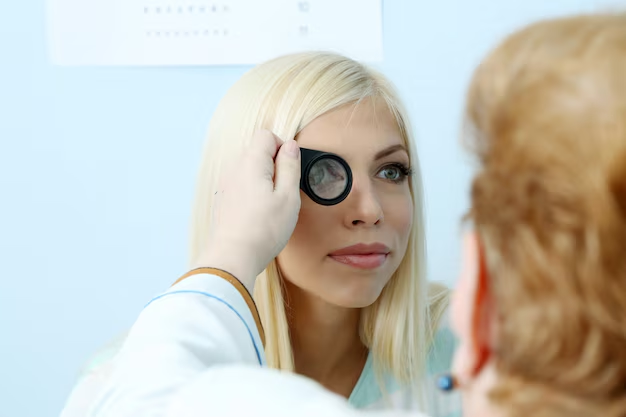Your Guide to How Much Does Medicare Pay For Cataract Surgery
What You Get:
Free Guide
Free, helpful information about Medicare Insurance and related How Much Does Medicare Pay For Cataract Surgery topics.
Helpful Information
Get clear and easy-to-understand details about How Much Does Medicare Pay For Cataract Surgery topics and resources.
Personalized Offers
Answer a few optional questions to receive offers or information related to Medicare Insurance. The survey is optional and not required to access your free guide.
Understanding How Much Medicare Covers for Cataract Surgery
For many, cataract surgery is a pathway to clearer vision and renewed quality of life. However, the associated costs can be a significant concern, especially for older adults who are more likely to require the procedure. If you’re contemplating cataract surgery, it's crucial to understand how Medicare can help with the associated costs.
What Does Medicare Cover?
Medicare is a federal health insurance program primarily for people aged 65 or older, and its coverage for cataract surgery is significant yet specific. Medicare Part B, which covers outpatient services, plays a crucial role here.
Basic Coverage: Typically, Medicare Part B covers 80% of the allowable charges for cataract surgery once you have paid your deductible. This includes the pre-surgery exam, the actual procedure, and follow-up care. However, you'll still owe the remaining 20% out-of-pocket, unless you have additional coverage.
Intraocular Lenses (IOLs): Medicare usually covers the cost of a conventional intraocular lens after cataract surgery. It’s essential to consider that premium lenses, which provide additional benefits like correcting astigmatism or presbyopia, may not be fully covered. These may incur extra costs which aren't covered by Medicare.
Pre and Post-Surgery: Coverage includes the initial eye exam that determines if surgery is necessary and one pair of prescription eyeglasses or contact lenses.
Additional Financial Considerations
While Medicare provides coverage, patients often still encounter out-of-pocket costs. Here are some strategies that can help manage these expenses:
Medicare Supplement Insurance: Also known as Medigap, this can cover the 20% co-pay not covered by Medicare Part B, helping ease the financial burden.
Medicare Advantage Plans: These plans may offer additional benefits for vision care, which could translate into lower costs.
Financial Assistance Programs: Some hospitals and clinics offer financial assistance or sliding scale fees for those who qualify. It's worth exploring these options to help manage any uncovered expenses.
Exploring Broader Financial Resources
Financing healthcare can be daunting, especially when faced with unexpected costs. However, several resources extend beyond Medicare to support those needing eye surgery or other medical interventions.
Government Aid Programs: These programs can cover various medical expenses. Check if there are state-specific programs offering assistance for vision-related conditions.
Debt Relief Options: If you find yourself under substantial financial strain due to medical costs, exploring debt relief solutions might be beneficial. Debt consolidation or negotiation services can be an option for substantial balances.
Credit Card Health Plans: Some credit cards offer payment plans that divide medical expenses into manageable monthly payments, often with low or no interest during a set promotional period.
Educational Grants: For younger patients or caretakers wishing to improve their financial literacy or pursue careers in healthcare to secure future stability, consider applying for educational grants.
Understanding Medicare's role in cataract surgery coverage is key to navigating the maze of medical expenses. By leveraging Medicare's coverage while exploring supplementary financial options, preparing for the cost of cataract surgery becomes a manageable task.
Financial Assistance & Support Options 🏆
- Medigap Plans: Supplement 20% not covered by Medicare.
- Medicare Advantage: Potential extra benefits and lower costs.
- Hospital Financial Aid Programs: For qualifying patients.
- Government Aid: State-specific programs may offer additional help.
- Debt Relief Solutions: Consolidation or negotiation services for large medical debts.
- Healthcare Credit Plans: Interest-free periods for medical expenses.
- Educational Grants: Training opportunities for financial management and career advancement.
What You Get:
Free Medicare Insurance Guide
Free, helpful information about How Much Does Medicare Pay For Cataract Surgery and related resources.

Helpful Information
Get clear, easy-to-understand details about How Much Does Medicare Pay For Cataract Surgery topics.

Optional Personalized Offers
Answer a few optional questions to see offers or information related to Medicare Insurance. Participation is not required to get your free guide.


Discover More
- Am I Elgible For Medicare
- Am I Enrolled In Medicare
- Am I Qualified For Medicare
- Are Adult Diapers Covered By Medicare
- Are Chemotherapy Drugs Covered By Medicare Part d
- Are Colonoscopies Covered By Medicare
- Are Covid Tests Covered By Medicare
- Are Cpap Machines Covered By Medicare
- Are Cpap Supplies Covered By Medicare
- Are Dental Implants Covered By Medicare
